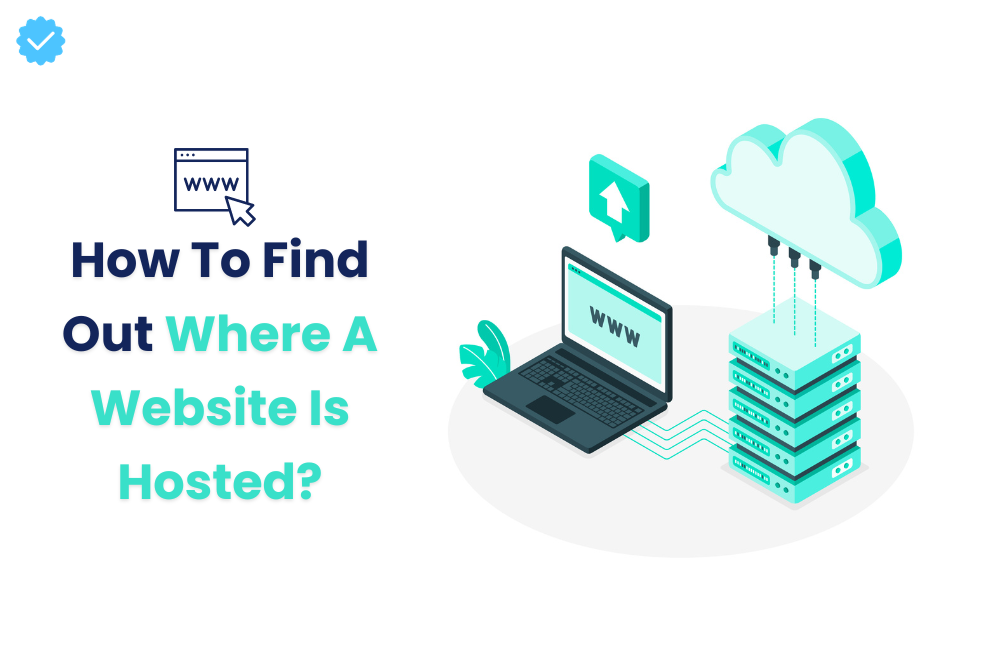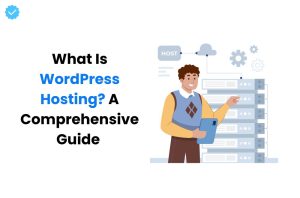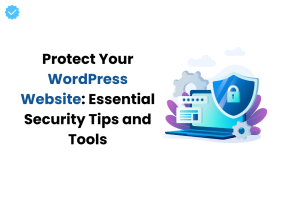Have you ever visited a website and been astounded by how quickly it loads? Or perhaps your competitor’s website loads pages far faster and can manage much higher visitor volumes than yours. You might even be a newbie who doesn’t know which hosting provider is ideal, therefore you want to imitate a well-known (and reputable) website. Maybe a previous administrator created the website you took over and left you with no instructions.
Whatever may be the reason, one question must have crossed your mind, “how to find out where a website is hosted?” Fortunately, there are numerous ways to simply determine the host of any website.
How to Find Who Is Hosting a Website?

Utilizing WHOIS search tools enables you to access valuable website information, including details about the domain’s owner and how to contact them, which can be especially useful if you’re interested in registering a domain. If you want to register a domain that already belongs to someone else, WHOIS information can be useful and may be the answer to your question “how to find where a website is hosted?” However, in order to tell who is hosting provider of a website, you first need to understand what the term WHOIS means.
What Is WHOIS?
The ownership information for each registered domain is collectively referred to as WHOIS. The terms “WHOIS data,” “WHOIS information,” and “WHOIS record” are frequently used.
You will be required to submit basic WHOIS information when you register a domain name for your company website. This will include the full legal name of your business, your contact information (email, phone, physical address, and administrative and technical contact information).
The WHOIS information is maintained by the non-profit Internet Corporation for Assigned Names and Numbers, or ICANN. The system of domain names and IP addresses used online is coordinated and maintained by ICANN. ICANN does not collect WHOIS information and there is no centralized WHOIS database, but it does define the rules that all domain registrars must follow.
How to Find the WHOIS information?
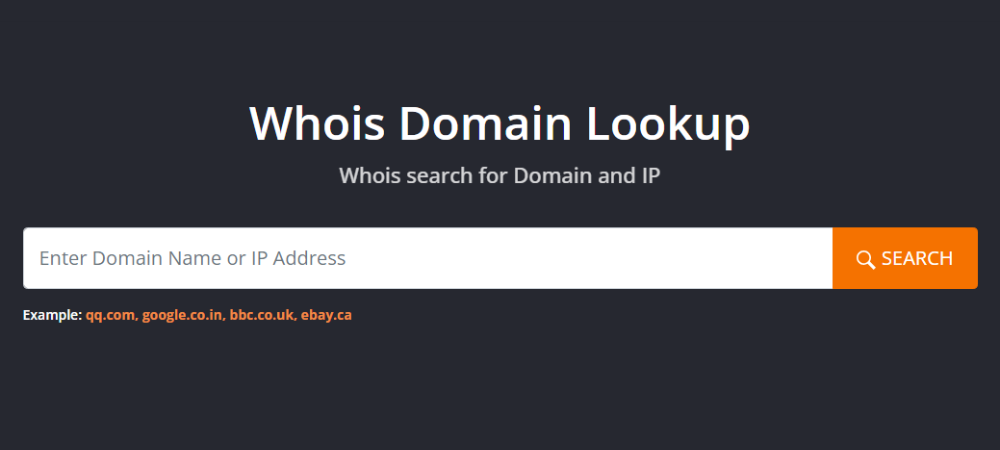
There are several tools and websites you can use to find WHOIS information for a domain name. Here are some of the best and commonly used options:
WHOIS Lookup Websites:
- WHOIS Lookup (WHOIS.com): A user-friendly website for performing WHOIS lookups. It provides detailed information about domain registrations.
- ICANN WHOIS (WHOIS.icann.org): The Internet Corporation for Assigned Names and Numbers (ICANN) offers an official WHOIS lookup tool.
- DomainTools (WHOIS.domaintools.com): A comprehensive domain research platform that includes WHOIS lookup functionality. It offers both free and paid services.
Command-Line Tools:
- Command Prompt or Terminal: You can perform a basic WHOIS lookup directly from your computer’s command-line interface using the WHOIS command. For example, WHOIS example.com.
Online WHOIS Tools:
- MXToolBox (mxtoolbox.com): This online tool not only provides WHOIS information but also offers a range of other network and domain-related tools.
- DomainIQ (domainiq.com): Allows you to search for WHOIS information and provides additional domain-related data.
Browser Extensions:
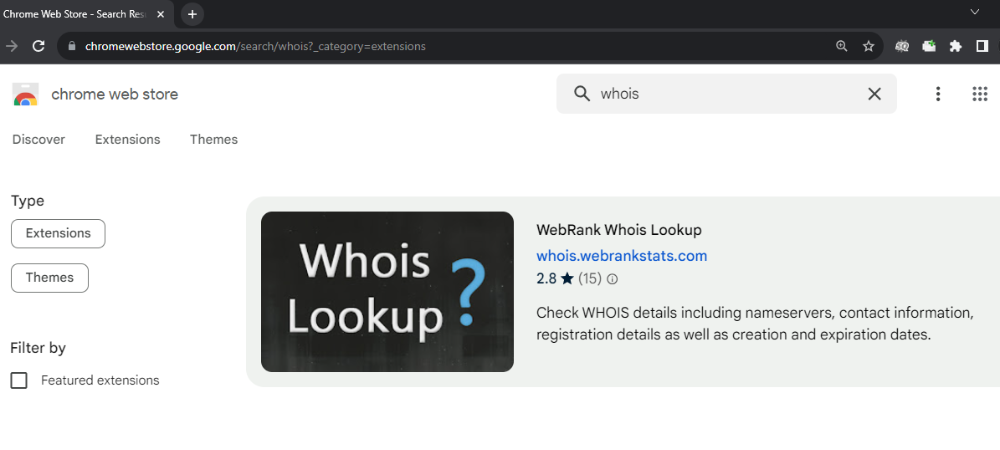
There are browser extensions available for popular web browsers like Chrome and Firefox that allow you to perform WHOIS lookups directly from your browser.
Registrar Websites:
Many domain registrars offer WHOIS lookup tools on their websites. If you know the registrar of a domain, you can visit their website and use their WHOIS lookup service. For example, GoDaddy, Namecheap, and Google Domains have their own WHOIS lookup tools.
API Services:
Some API services provide programmatic access to WHOIS data, which can be useful for automated tasks or integration into your applications. Companies like DomainTools and WhoAPI offer WHOIS APIs.
When using these tools or websites, simply enter the domain name you want to look up, and they will provide you with information about the domain’s registration, including details about the domain owner, registration date, expiration date, and more. Keep in mind that the availability and depth of information may vary depending on the tool and the domain’s privacy settings. Some domains may have limited or private WHOIS data due to privacy protection measures.
Is It Possible to Keep Your WHOIS Data Private?
In most cases, you are allowed to keep your WHOIS data private by paying an extra amount while purchasing a domain either through a web hosting company or a domain registrar. Domain privacy fees generally fall between $10 to $20 per annum per domain. This allows you to hide your crucial information like who hosts my website, from your competitors.
However, there are certain exceptions. For instance, domains that include a .us extension do not allow private registration.
What Is a Domain Registrar?

A corporation that has been authorized by ICANN to purchase and resell domains to organizations and end users is known as a domain registrar.
Although many businesses buy them through a web hosting provider, domain names can be purchased through domain registrars. In some situations, the provider of web hosting also serves as the registrar.
On their own servers, either locally or in the cloud, large organizations occasionally host websites. These businesses can buy domains directly from one of the many domain registrars without the need for web hosting services. When you purchase a domain directly from a Domain Registrar, you don’t have to wonder about “who is hosting my domain?”
Why Do Companies Keep WHOIS Data Privacy?
Businesses may decide to keep WHOIS information private for a number of reasons, including:
Private information: A home-based business may not want its address or phone number made available to the public.
Spam: Since some businesses utilize WHOIS data to hunt for potential clients, sharing WHOIS data may bring sales pitches and spam.
Fraud: Fraudsters can commit identity theft and other types of fraud using WHOIS data. Keeping the info secret can aid in avoiding this.
Confidentiality: Companies may seek privacy before a merger when a new firm may desire anonymity of their domain or may not want competition to know which domains the company owns.
Wrapping It Up!
How to find out where a website is hosted? This is a very crucial question to address if you want the best hosting for your website. While many websites keep their WHOIS data private, there are several ways to get your hands on that data. So, use the above-mentioned tricks to host your website on the best possible platform.
To get the best value for your money and unlock the full potential of your site, partner with us. We provide free consultation to help you get started. Additionally, 24/7 monitoring further enhances our reliability. Visit our website to get started now!
